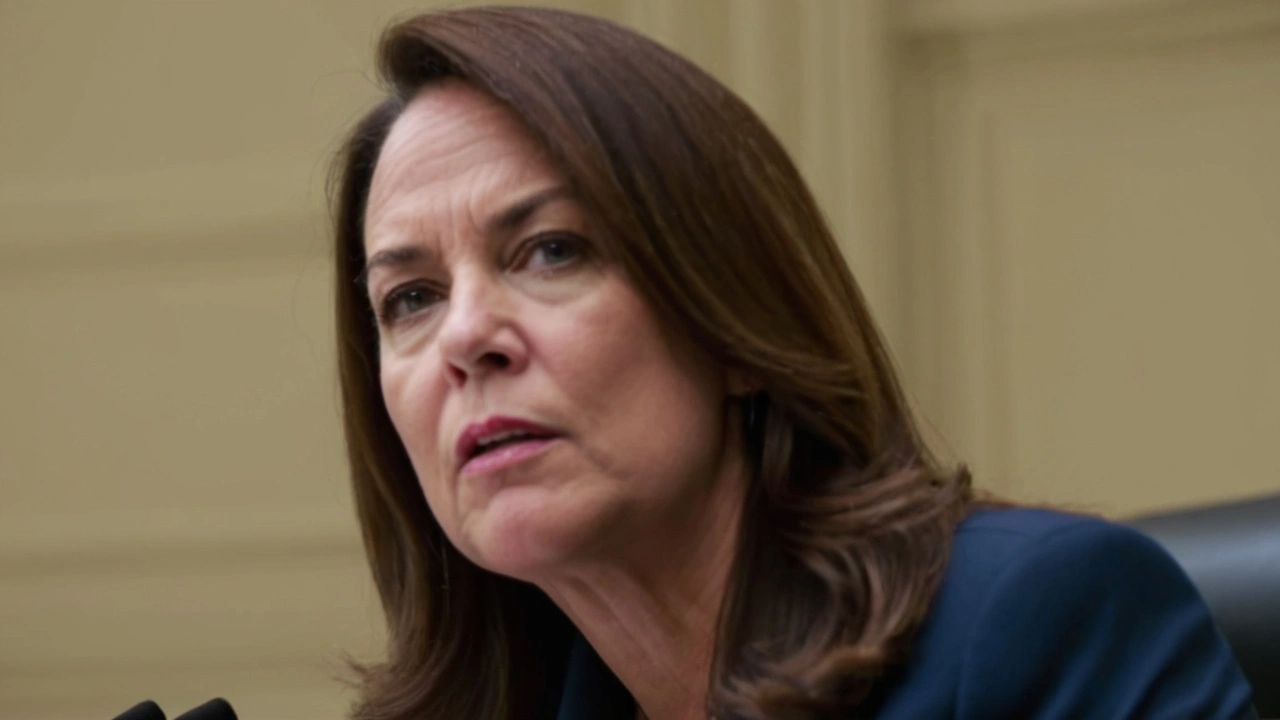US Secret Service Director Kimberly Cheatle Steps Down After Attempt on Donald Trump's Life

In Politics
US Secret Service Director Resigns After Assassination Attempt on Trump
In a shocking turn of events, Kimberly Cheatle, the 27th Director of the U.S. Secret Service, has tendered her resignation following an assassination attempt on former President Donald Trump. The news comes amid mounting scrutiny and pressure from lawmakers on both sides of the aisle, particularly during an intense and emotionally charged session of the House Oversight Committee earlier this week.
Intense Scrutiny Over Security Measures
The House Oversight Committee session saw Cheatle grilled by Democratic and Republican legislators alike, who were seeking answers to the lapses in security that led to the near-tragic incident during a rally in Butler, Pennsylvania, on July 13. As a former top-tier protective detail responsible for safeguarding the nation's most high-profile figures, the Secret Service has long been held in high regard. However, this recent breach has thrown a harsh spotlight on the organization's internal practices and protocols.
Members of the committee questioned Cheatle rigorously, with many expressing frustration and disbelief at her responses. Criticism ranged from claims of dishonesty to outright accusations of incompetence. Representative James Connolly (D) noted, "The safety of our nation's leaders is of utmost importance, and this incident shows a glaring deficiency in the measures in place." Echoing this sentiment across the aisle, Representative Michael Turner (R) was equally vocal, saying, "We trust the Secret Service with the lives of our leaders, and when that trust is broken, there must be accountability."
Amid these allegations, Cheatle’s resignation has been seen by many as an inevitable outcome. Her tenure, which began just under a year ago on September 17, 2022, has been marred by this unprecedented incident, leading many to call for a thorough overhaul of the agency's procedures.
Events Leading Up to the Resignation
The rally in Butler, Pennsylvania, on July 13 was meant to be a routine event for Donald Trump, who continues to command a significant political following. However, the day took a dark turn when an assailant attempted to compromise Trump's safety. Details of the attempt have since been partially withheld for security reasons, but initial reports indicate a severe failure in the communication and threat assessment procedures that are standard in such situations.
As investigations continue, several key questions remain unanswered. How did the would-be assassin come so close to achieving their goal? Were there intelligence warnings that went unheeded? What changes will be implemented to prevent such occurrences in the future? These are just a few of the queries posing a challenge to the agency in the wake of this crisis.
Public reaction has been swift and severe. Numerous calls for accountability have poured in from across the nation, with citizens and political figures alike demanding answers and reassurances that steps will be taken to fortify the protection mechanisms surrounding current and former presidents.
Cheatle's Legacy and Future of the Secret Service
Before rising to the helm of the U.S. Secret Service, Cheatle held the pivotal role of Director of the Office of Protective Operations, where she was lauded for her dedication and expertise. Her ascension to Director was seen as a testament to her commitment to the nation's security. However, this recent incident has overshadowed her earlier successes, casting a long shadow over her tenure.
With Cheatle stepping down, the Secret Service faces a clear crossroads. The immediate task at hand will be to identify strong, capable leadership that can restore confidence and ensure such lapses do not recur. The incoming director will have to navigate the turbulent waters left in the wake of this incident and work towards restoring the prestigious reputation of the agency.
The broader implications of this event highlight a deeper need for systemic reform within the Secret Service. Analysts and critics alike argue that beyond leadership changes, there is a necessity for revisiting and revising the operational protocols to adapt to evolving threats. This view is supported by an array of security experts who have pointed out the vulnerabilities in current practices that could be exploited.
Reactions and Next Steps
As the dust settles on this chapter, the focus now shifts to the future. Lawmakers are expected to propose a series of hearings and investigations into the event, aiming to dissect and understand the failures that occurred. These steps will also likely include legislative oversight to implement new guidelines and policies that can bolster the nation's protective services.
From a public perspective, the incident has left an indelible mark on the national consciousness. The near-tragic episode serves as a stark reminder of the fragility of security even in the most controlled environments. Citizens are demanding stronger assurances and more transparency about the measures in place to protect their leaders.
For the U.S. Secret Service, the path forward will be a complex mix of addressing internal lapses, reassuring public trust, and adjusting to the evolving landscape of threats. While leadership changes can pave the way for new ideas and reforms, it will be the commitment to thorough and consistent implementation of these changes that will ultimately determine the agency's future standing.
In closing, Kimberly Cheatle’s resignation marks a pivotal moment for the Secret Service. As the agency seeks to move past this controversy, it is clear that both immediate actions and long-term strategies will be necessary to safeguard the lives of those they are sworn to protect. The nation waits with bated breath to see how the Secret Service will rise to meet these challenges.
Write a comment